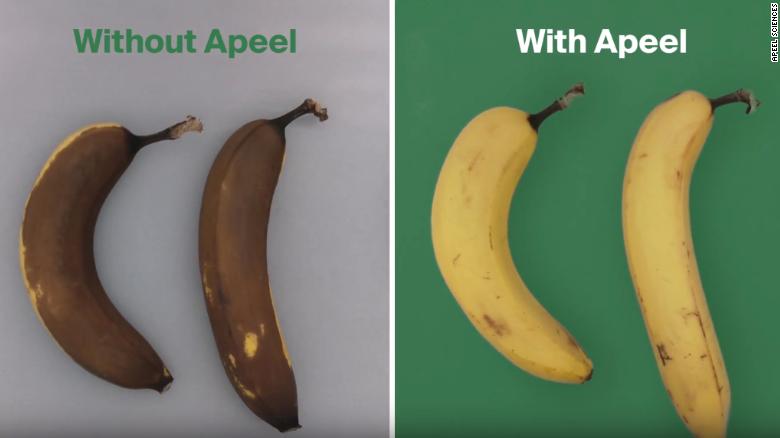"We are working systematically to reduce food losses. That's why we are very pleased to pave the way for the innovative Apeel process in Germany," says Markus Mosa, CEO of Hamburg-based Edeka AG...
The approach meets the zeitgeist. After all, according to the nutrition report published by the German Federal Ministry of Food and Agriculture, more than twelve million tons of food end up in the trash every year - more than half of it in private households.
The market launch is accompanied by a campaign that includes a TV commercial and social media activities. In the clip by the Jung von Matt/Next Alster agency, a sloth sits at the kitchen counter. Accordingly, it slowly reaches for an avocado. But thanks to Apeel, there's no need to rush at all - so the message goes." (wuv.de)
"The first trigger for Rogers, a materials scientist by training, to address the issue, however, was not the problem of plastic waste. During his doctoral studies, he said, he became aware that it was not poor harvests but food spoilage in less developed countries without end-to-end cold chains that was responsible for much of the hunger.
The company has become active in Kenya and Nigeria, among other countries, the Apeel CEO said. Using the humanitarian argument, his California-based company convinced Bill and Melinda Gates' foundation to participate in 2012. Shareholders also include investor Andreessen Horowitz, who also helped launch companies such as Twitter, Facebook and Airbnb." (welt.de)
"The supermarkets' pricing policy has also come in for criticism from consumer advocates: currently, they say, treated products are about twice as expensive as those without a coating. So far, it is the buyer and not the supermarket that pays for the higher costs." (oekotest.de)
"Apeel products are on shelves in more than 200 US stores, including Costco and Kroger. Harps Food Stores, a grocery chain testing with avocados, said it has already seen a 50% boost in avocado profit margins because it is taking advantage of the longer shelf life and throwing out less product.
(cnn.com)
"Apeel was founded in 2012 by James Rogers, after receiving a $100,000 grant from the Bill and Melinda Gates Foundation to help reduce post-harvest food waste in developing countries that lacked refrigeration infrastructure.
After the initial grant, backing has been provided by Microsoft cofounder Bill Gates and venture capitalist firm Andreessen Horowitz. Apeel has raised $110 million in financing to date." (wikipedia)
That makes you feel so much safer & warmer.
Well, there WOULD be the possibility, of course, simply not to move fruits & vegetables back and forth over the entire globe,
but instead
to grow only the stuff that grows & thrives optimally locally, and only so much of it that it is enough to feed the people who live in the area + a little more canned or dryed for bad times.
Savings in packaging waste & transport costs would never be the same again & for the customers it would be cheaper & healthier.
But that would probably be a little too radical.
On the other hand - as I see it, the things are running anyway exactly to this result at the moment.
And maybe that means things are going exactly according to plan.
Inflation, bankruptcy wave in the middle class, rising energy costs, increasing supply bottlenecks & all that shit that is going on.
That should at least let you think about growing your own food as far as possible & having something ready to trade for everything else.
Anyway, it can't do any harm, but can possibly do a lot of good for you.
Every time you visit a supermarket overflowing with goods it can be the last time you see fresh bananas, pineapples & avocados in your life - independent of your remaining life expectancy (& even if you live at a place where these things are growing on actual fucking trees).
This possibility has always existed, but at the moment the probability of such an event is rising considerably.
And rising, and rising.



Keine Kommentare:
Kommentar veröffentlichen
Hinweis: Nur ein Mitglied dieses Blogs kann Kommentare posten.